Following are updates shared from submissions of the Lutheran Office for World Community and state public policy offices.
U.N. | Arizona | California | Colorado | Minnesota | Ohio | Pennsylvania | Texas | Washington | Wisconsin
Lutheran Office for World Community, United Nations, New York, N.Y. ELCA.org/lowc
Dennis Frado, director
COVID-19 UP-ENDS WORKING METHODS AT UNITED NATIONS HEADQUARTERS: Like many institutions, the United Nations’ work at its New York headquarters has had to adjust to a lack of face-to-face meetings, by prohibiting them as a safety measure. In normal times, the General Assembly (GA) has used no-objection procedures for draft measures that are less or even non-controversial. A Member State, group of states or the GA President puts one forward and allows Member States a several day period to “break the silence” with any objections or editing of a text. In recent weeks as the GA was unable to convene face-to-face, the President instituted a variation on this to also allow Member States to vote on draft resolutions and make statements via email while also convening some meetings by video conference. While there have been various logistical bumps along the way, most are being ironed out, interpretation being a notable exception.
The Security Council, meanwhile, has had a more difficult path. For several weeks, they could not agree on how to meet until provisional measures were adopted at the end of March and beginning of April. This delay resulted in criticism that it could not respond quickly to perhaps one of the worst threats to international peace and security during the nearly 75 years of the UN’s existence. (As of May 5, they have still not been able to hold a vote on a text on COVID-19 due to disagreements.) A detailed analysis of the situation has been and continues to be covered by Security Council Report.
A remaining concern is the lack of transparency to these processes for those other than Member States and Observer Missions. There have been several communications from civil society groups to Member States to open up the practices so that non-governmental voices can be heard.
Even though the situation has created unexpected hurdles in New York, much of the UN’s work has otherwise continued around the world while both responding to COVID-19 itself and by taking safety measures for staff and providing protection for those with whom they are working to the extent that they are able.
GENDER, FAITH AND COVID-19 RESOURCES: United Nations Deputy Secretary-General Ms. Amina Mohammed on April 27, 2020 launched “Rise for All” – a global advocacy effort, led by women leaders to help galvanize global solidarity and support the UN COVID-19 Response and Recovery Fund. As the world continues to deal with the COVID-19 pandemic, faith actors have been at the fore front responding to the crisis, providing much needed relief, raising awareness and educating communities on accurate information and physical distancing to reduce transmission, as well as advocating to governments. Here are some statements and resources from faith actors that highlight the gender dimensions of the pandemic:
Arizona
Solveig Muus, Lutheran Advocacy Ministry Arizona (LAMA) director@lamaz.org
As the newest state public policy office of the ELCA, the Lutheran Advocacy Ministry Arizona (LAMA) advocacy office opened its doors just a few short weeks before the Covid-19 pandemic took hold. We had just begun the process of introducing ourselves to the 85 congregations and ministry sites in Arizona and look forward to the time when it is safe to gather once again, to make those introductions and build those relationships in person. We are grateful for the Grand Canyon Synod whose communications team has done a remarkable job handling pandemic-related matters for the synod.
LAMA’s focus in the meantime is to gather information and build its network; the policy team is contacting every congregation to listen and to learn how we might serve them, and the Grand Canyon Synod as a whole, in the future. This, we can do by phone!
We also are excited about the opportunity to engage with our congregations in the process of developing a new Social Message on Government and Civic Engagement, and we are hopeful of it being adopted by the ELCA Church Council in June.
California
Regina Q. Banks, Lutheran Office of Public Policy- California (LOPP-CA) lutheranpublicpolicyca.org
END CHILD POVERTY CONGRESSIONAL VISITS: On behalf of the End Child Poverty Campaign, members of several California Lutheran churches and LOPP-CA staff met virtually with federal California representatives Zoe Lofgren, Adam Schiff, Ted Lieu, and Anna Eshoo. With gratitude for the important first steps of the federal CARES Act, we advocated to increase and expand access to tax credits for families, provide unemployment insurance to farmworkers, make TANF and SNAP more accessible, and boost funding to other programs related to the health and wellbeing of children living in poverty.
ADVOCACY IN QUARANTINE: We were truly blessed to have many advocates join us during our April Advocacy in Quarantine meetings. Every Wednesday at noon, we give a brief update on federal and state COVID-19 response and lift up opportunities to take action. Our action items included signing on to a letter from Líderes Campesinas for farmworker justice, urging state use of Community Development Block Grants for rental assistance, and participating in the SNAP National Day of Action.
CHURCH AND STATE HEARING: Our office hosted two virtual hearings on the ELCA Draft Social Message on Government and Civic Engagement. The Rev. Roger A. Willer, Director of Theological Ethics in the Office of the Presiding Bishop, moderated our statewide virtual hearing with over seventy people in attendance. Wylie Cook, a student at Pacific Lutheran Theological Seminary, also hosted a hearing for seminary students. Comments from the hearings were submitted to the social message task force.
INTERFAITH ADVOCACY: Along with our partners in the California Interfaith Coalition, we submitted a letter to California’s governor and key legislative decision makers urging inclusion of ITIN tax filers in all COVID-19 relief. ITIN filers are undocumented workers who pay taxes but who are unable to access benefits such as SNAP, unemployment, and stimulus relief checks. The dignity of all human beings is a cornerstone of our faith traditions and compels us to seek greater and more permanent solutions for undocumented Californians.
LOBBY DAY PREPARATIONS: We will soon be hosting our second annual Lutheran Lobby Day on May 20. This will be our first ever virtual lobby day. While we regret that we cannot gather in person at the Capitol, we are delighted that going virtual technology allows more people across our state to participate without having to travel. Participants will meet with legislators from their districts virtually throughout the day. With the California Legislature discussing the 2020-21 budget in mid-May, we are at the ready to make sure that funding goes toward people hit hardest by this crisis.
Colorado
Peter Severson, Lutheran Advocacy Ministry-Colorado www.lam-co.org
LEGISLATURE PLANS TO RESUME IN MAY: The Colorado General Assembly is planning to resume legislative operations on Monday, May 18. By statute, the legislature must pass a budget and the annual School Finance Act by July 1. The state Supreme Court has ruled that the 120-day legislative calendar may resume counting from the day when operations were suspended in March (Day 68), so the Assembly may meet for up to seven additional weeks.
FAIR TAX COLORADO: Lutheran Advocacy is a leading partner in the Fair Tax Colorado coalition, seeking to put a tax equity measure on the fall ballot (Initiative 271). We will be circulating petitions when it is safe to do so. In the meantime, learn more at fairtaxcolorado.org.

HOMELESSNESS IN THE PANDEMIC: Lutheran Advocacy is supporting a series of executive requests to Governor Jared Polis, led by the Colorado Coalition for the Homeless. They include acquiring motel/hotel rooms for shelter space, providing more testing resources with priority for those providing and utilizing shelter services, and providing more personal protective equipment (PPE) for homelessness services providers.
CENSUS RESPONSE: Colorado is a leader so far in the 2020 Census, with a 57.2% response rate. Keep it up at 2020Census.gov.
SYNOD ASSEMBLY: The Rocky Mountain Synod Assembly will take place via digital mediation for the first time ever on Saturday, May 2. We are pioneering ways to be the church for this age!
Minnesota
Tammy Walhof, Lutheran Advocacy- Minnesota (LA-MN) lutheranadvocacymn.org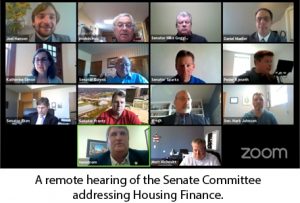
LEGISLATIVE SESSION: Both chambers went back into “regular” session on April 14 after an extended recess, though regular in a time of COVID-19 looks very different.
HOUSING & COVID-19: Our Homes for All Coalition (H4A) continues to call for $100 million in rental assistance, and action beyond the governor’s executive order to delay evictions. Without legislative action, thousands of Minnesota households will struggle to catch up on rent or mortgage payments following the emergency, putting their housing at risk.
BONDING: LA-MN (with H4A) is pushing for $500 million in Housing Infrastructure Bonds. This would create needed affordable housing while credit is cheap, create jobs, and be an economic stimulus in the COVID-19 recession. Gov. Walz is calling for $275m in housing bonds, but some legislators recently announced they will not support bonding until the Peacetime Emergency ends.
SURPLUS TURNED TO DEFICIT: The predicted $1.5 billion budget surplus for the current biennium is now a $2.4 billion deficit. The $2.36 billion budget reserve offers a buffer, but budget uncertainty and recession lead legislators in vastly different directions – from help for those most vulnerable, to incentives for small business, to austerity.
CREATION CARE VIDEO SERIES: On Earth Day, the EcoFaith Network of the NE MN Synod introduced Moments of Arising, a year-long video series. Originating from work for the postponed summit, the series offers an opportunity (even during the pandemic) to look and listen for green blades rising throughout the Jubilee Year of Earth Day.
To reach LA-MN Director, Tammy Walhof, please call or text 651-238-6506, or email to tammy@lutheranadvocacymn.org. If you’ve emailed in the last few weeks, please be patient as Tammy catches up after being ill with COVID-19.
OHIO
Deacon Nick Bates, Hunger Network in Ohio hungernetohio.com
SOCIAL MINISTRY IN A TIME OF COVID-19
REPORT FINDS THAT FAITH COMMUNITIES REMAIN COMMITTED TO SERVING THOSE IN NEED. AS NEED RISES, FAITH LEADERS WORRY ABOUT LEADERSHIP, SUPPLIES, FUNDING TO MEET THE DEMAND.
Full report available here
On April 30 the Hunger Network in Ohio released a report that summarizes a statewide survey of social ministry organizations such as food pantries, community meals, community assistance, and other services our communities offer.
THE SURVEY FOUND:
- Need is up 75% (50% report some increase and 25% report dramatic increase)
- Volunteers remain positive, but growing concerns and burnout are being felt
- More than 60% of respondents indicated that they are seeing an increase in new families in search of food and assistance.
FAITH COMMUNITIES REPORT NEEDING:
- A plan: Social distancing is the new norm. How can we implement and adapt social service ministries for the long-term?
- Federal investments: As the state of Ohio prepares for budget cuts in the next few weeks, faith leaders identified the connection to senior and children services, schools, and anti-poverty initiatives.
- An economy that works for all: The shortcomings of our social safety net have been exposed. It is time to strengthen unemployment compensation, food assistance and much more to help families through whatever crisis happens next.
Pennsylvania
Tracey DePasquale, Lutheran Advocacy Ministry–Pennsylvania (LAMPa) lutheranadvocacypa.org
 UPDATE ON COVID-19 RESPONSE: In addition to working to streamline access to nutrition and other relief as well as connect volunteers and resources with emergency needs around the state, LAMPa connected feeding ministries with thousands of meals that were distributed by the Pa. National Guard. Read about one congregation in Clarion that received 3,000 meals. LAMPa staff continues to forward information about grants and other resources related to a variety of ministries across the Commonwealth to our synods. LAMPa submitted letters to lawmakers urging safe release of those who are detained or incarcerated and nearing the end of their sentences for their safety and the safety of those remaining. Staff also urged judiciary committee members to mandate that counties undertake new assessments of ability to pay for those whose fines, court fees or restitution began or extended through the pandemic.
UPDATE ON COVID-19 RESPONSE: In addition to working to streamline access to nutrition and other relief as well as connect volunteers and resources with emergency needs around the state, LAMPa connected feeding ministries with thousands of meals that were distributed by the Pa. National Guard. Read about one congregation in Clarion that received 3,000 meals. LAMPa staff continues to forward information about grants and other resources related to a variety of ministries across the Commonwealth to our synods. LAMPa submitted letters to lawmakers urging safe release of those who are detained or incarcerated and nearing the end of their sentences for their safety and the safety of those remaining. Staff also urged judiciary committee members to mandate that counties undertake new assessments of ability to pay for those whose fines, court fees or restitution began or extended through the pandemic.
COVID-19 MINISTRY NEEDS SURVEY SHARED: LAMPa recently shared a survey with faith leaders throughout Pennsylvania inviting them to share how they may be adjusting ministries beyond their walls in response to COVID-19 and inviting them to offer both public policy suggestions for recovery and a vision for the future they want to build after the pandemic.
LAMPA SCHEDULES VIRTUAL ELCA SOCIAL MESSAGE HEARING: LAMPa advocates are invited to participate in a virtual presentation and hearing on “A Draft Social Message on Government and Civic Engagement: Discipleship in a Democracy”. The Rev. Dr. Roger Willer, the ELCA Director for Theological Ethics, will share a presentation and hearing on the message on May 18.
ADVOCACY ENGAGEMENT: LAMPa constituents responded to action alerts on federal COVID-19 recovery needs and support for the veto of a harmful environmental bill, HB 1100. In addition, LAMPa shared informational alerts on imminent deadlines for low-income, blind or disabled persons to apply for stimulus payments. Pennsylvania hunger leaders signed on to a letter to Pa. Department of Human Services, requesting changes to policies to remove barriers to safe access to nutrition, including a petition to urge that Supplemental Nutrition Assistance Program (SNAP) benefits cover grocery delivery fees.
BE COUNTED!: LAMPa continues to urge Pennsylvanians to apply for and vote by mail-in ballot and complete the 2020 Census.
Texas
Bee Moorhead, Texas Interfaith Center for Public Policy texasimpact.org
Texas Impact is resourcing local congregations to share best practices on how they are responding to meeting unmet needs in their local communities and how they can effectively advocate on behalf of vulnerable populations in their communities.
In April, Texas Impact interviewed ELCA’s Trinidad Ariztia for the Weekly Witness podcast and promoted the human migration Action Alerts and sign on statements. Texas Impact organized more than 300 telephone calls to the Governor, urging him to expand Medicaid and will be participating in a Virtual Rally to expand Medicaid in Texas.
The weekly e-news has continued to highlight denominational leaders, including all three Texas ELCA Bishops, who continue to recommend congregations not meet in person (despite the Texas Governor classifying worship as an “essential service” and beginning to “reopen” the state). Texas ELCA bishops have been leaders throughout the COVID-19 crisis, helping to resource other denominational leaders throughout the state. Recently, a Texas Episcopal bishop reached out to Texas Impact for examples of guidance other denominational leaders were promulgating; we were able to connect the Episcopal bishop with the ELCA bishops, and we know that this connection was mutually beneficial. Texas Impact appreciates the opportunities we are having in this time to assist and collaborate with denominational partners and will continue to connect leaders throughout the state who need support and guidance.
Finally, Texas Impact has recruited 69 Legislative Engagement Group leaders to organize Legislative Engagement Groups throughout Texas to build relationships with their state legislative offices. We are connecting people within each House district to provide community and a sense of accountability. The first Legislative Engagement Group training will be hosted virtually on May 7.
We feel encouraged by the level of advocacy participation during this unprecedented time and are looking forward to continuing training and connecting the faith community in the months to come.
Washington
Paul Benz and Elise DeGooyer, Faith Action Network fan@fanwa.org
COVID-19 SUPPORT: FAN is serving as the lead ally to ensure that small to medium sized African American churches survive the COVID-19 pandemic by securing resources to keep their ministries viable. Eight African American clergy members presented a five-point letter in mid-March to the governor and FAN is supporting them as they continue to navigate state and feder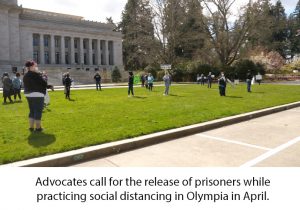 al resources.
al resources.
FAN is also part of a legal advocacy effort to lessen the COVID-19 threat in our state prisons. Following an emergency lawsuit in March that was taken up by the Supreme Court, people at one state prison led a protest over COVID-19 exposure while family members and advocates led rallies and vigils for safe social distancing measures in prisons. The court ordered the Governor to create a release plan within three days, and on April 23 the court heard remote oral arguments and voted 5-4 in favor of the Governor and the Department of Corrections. The state will release approximately 1,000 people with low level convictions and those who are set for release within the next 3-6 months, but no more after that.
 2020 CENSUS: FAN continues to send weekly opportunities for faith communities to encourage their members to participate in the census, from bulletin inserts and flyers to include in food packages, to children’s activities and videos from our partner organizations. We held a statewide faith-based census webinar with Washington Nonprofits and the US Census Bureau to brainstorm with faith representatives how best to reach historically undercounted people in their communities, and we plan to host another webinar in May.
2020 CENSUS: FAN continues to send weekly opportunities for faith communities to encourage their members to participate in the census, from bulletin inserts and flyers to include in food packages, to children’s activities and videos from our partner organizations. We held a statewide faith-based census webinar with Washington Nonprofits and the US Census Bureau to brainstorm with faith representatives how best to reach historically undercounted people in their communities, and we plan to host another webinar in May.
ONLINE REGIONAL SUMMITS: FAN every year has four regional summits around the state – this year they will be online with gatherings happening in May and June in Vancouver, Spokane, Yakima, and Puget Sound. There will be time for a review of our recent legislative session and COVID-19 updates in each of these areas.
Wisconsin
The Rev. Cindy Crane, Lutheran Office for Public Policy in Wisconsin (LOPPW) loppw.org
LOPPW PRIORITIES: Our council decided to address policies that impact those most vulnerable during the pandemic, and council members will step up when needed.
WEDNESDAY NOON LIVE: Interviewed Judith Roberts, ELCA Director of Racial Ministries and Rev. Lamont Wells, President of the African Descent Lutheran Association for Inoculation against Hate: https://www.facebook.com/LOPPW/videos/1574812612669786/ Created a video and prepared for May’s program.
VOTING: We kept members alert to changes to April voting and encouraged people to obtain absentee ballots. We advocated for an extending the deadline for receiving absentee ballots and for changing the election day’s date. We also posted a press release.
SAFER AT HOME: Participated in several Lt. Governor’s conference and communicated changes to our members. We also were part of an amicus to the WI Supreme Court advocating against overturning Governor Ever’s Safer at Home article. LOPPW was one of the groups featured in the attorney’s brief.
HUNGER: Participated in a conference call with hunger leaders around the state. Shared with them and our list serve an action alert from our D.C. office. Also participated in a webinar with the Center on Budget and Policy Priorities to prepare for another action alert, and in several webinars on the stimulus bills.
ANTI-SEX TRAFFICKING: Advised an assembly person on an anti-sex trafficking resource. Participated in a quarterly meeting with the Wisconsin Anti-human Trafficking Consortium. The problem of trafficking has not subsided during the pandemic. Exploitation online has increased. Initiated a discussion with Women of the ELCA to hold a webinar.
CARE FOR GOD’S CREATION: Made several resources known for Earth Day. Participated in a South-Central Synod of Wisconsin Care for God’s Creation meeting, and statewide call to discuss the Governor’s task force on Climate Change. Planned for an environmentalist and former member of an ELCA congregation in WI to join us for our new “Say it in Five Minutes” segment.

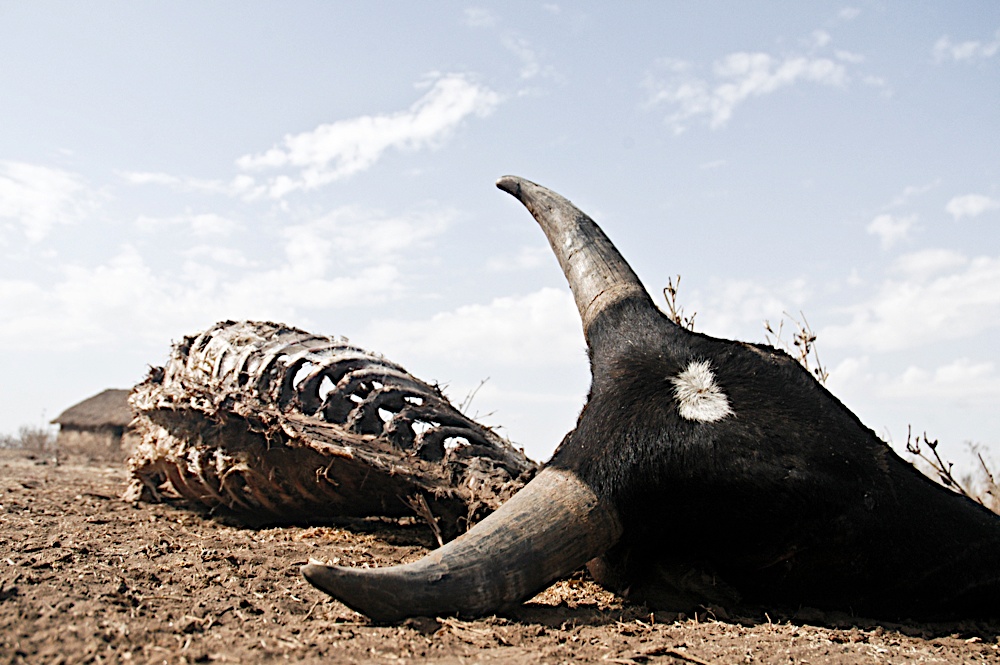


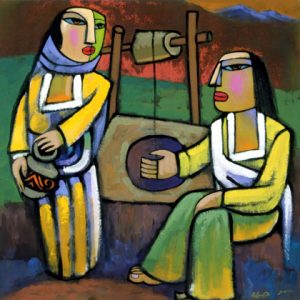
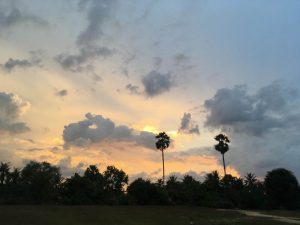
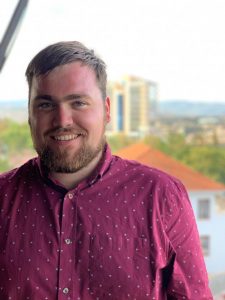






 © mars.nasa.gov
© mars.nasa.gov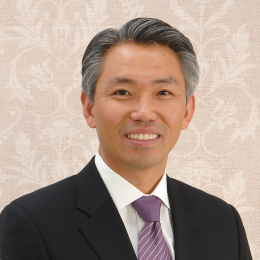

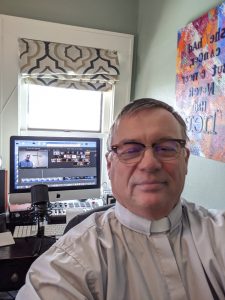
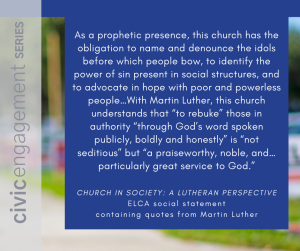
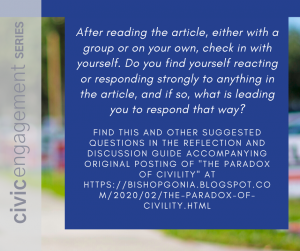
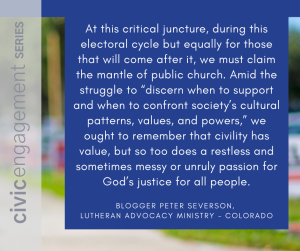

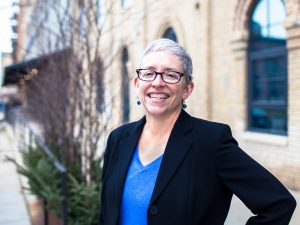 Shari Seifert lives in Minneapolis with her wife, two sons and the cutest Golden Doodle you have ever seen. She works as a Realtor and is committed to working for racial justice in the ELCA. Shari is currently vice-president of the European Descent Lutheran Association for Racial Justice (EDLARJ), a member of the Minneapolis Synod racial justice table, her congregation’s Race Equity Committee and Multi-faith Anti-Racism and Healing (MARCH) She is also on the core planning team for the Multicultural Youth Leadership Experience (MYLE).
Shari Seifert lives in Minneapolis with her wife, two sons and the cutest Golden Doodle you have ever seen. She works as a Realtor and is committed to working for racial justice in the ELCA. Shari is currently vice-president of the European Descent Lutheran Association for Racial Justice (EDLARJ), a member of the Minneapolis Synod racial justice table, her congregation’s Race Equity Committee and Multi-faith Anti-Racism and Healing (MARCH) She is also on the core planning team for the Multicultural Youth Leadership Experience (MYLE).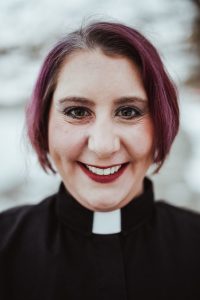 Heart faith gathering). She provides resources, trainings, workshops, and consulting on Family Systems, Emergent Worship, Consent Culture, ableism and racism in church, as well as other topics. Pastor Jess teaches discipleship culture and coaches other church leaders through Spark Faith. She is a member of Proclaim (the professional organization for LGBTQIA+ rostered ministers and seminarians in the ELCA) and is a member of EDLARJ and Another Pebble, the Metro Chicago Synod’s Anti-Racism Team. She lives in a suburb of Chicago with her spouse, child, and two cats.
Heart faith gathering). She provides resources, trainings, workshops, and consulting on Family Systems, Emergent Worship, Consent Culture, ableism and racism in church, as well as other topics. Pastor Jess teaches discipleship culture and coaches other church leaders through Spark Faith. She is a member of Proclaim (the professional organization for LGBTQIA+ rostered ministers and seminarians in the ELCA) and is a member of EDLARJ and Another Pebble, the Metro Chicago Synod’s Anti-Racism Team. She lives in a suburb of Chicago with her spouse, child, and two cats.